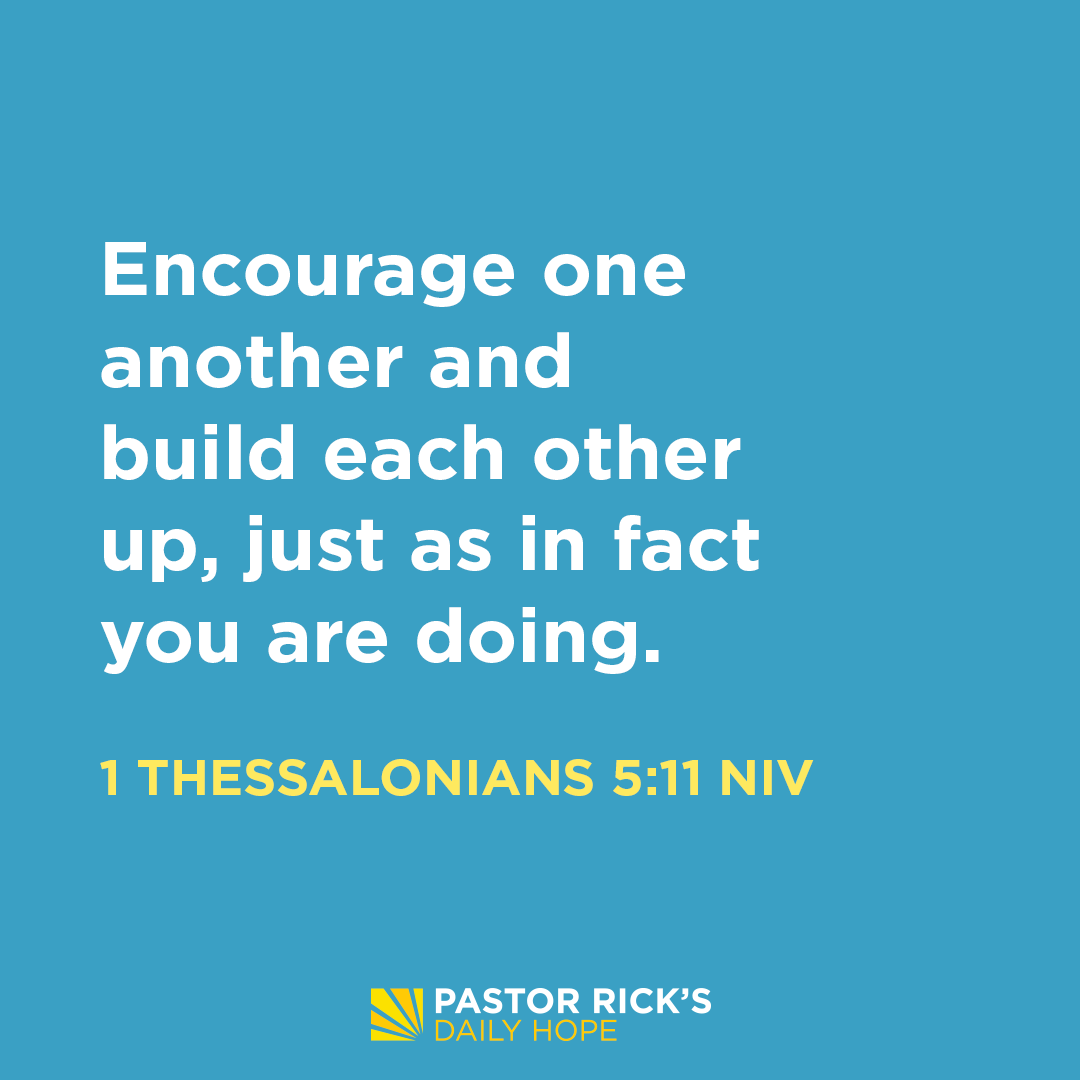How Family Members Help Each Other Grow
by Rick Warren — July 28, 2022
From Awesome Relationships

“Since I . . . have washed your feet, you ought to wash each other’s feet. I have given you an example to follow. Do as I have done to you.”
John 13:14-15 (NLT)
One of the marks of an awesome family—whether it’s your biological family, your adoptive family, or your church family—is that you help each other grow. But how do you do that?
Let me give you two methods that help people grow and two that don’t. These apply in every area of life, not just in families.
You help each other grow:
1. Through example. Jesus did this in teaching his disciples. John 13:14-15 says, “Since I . . . have washed your feet, you ought to wash each other’s feet. I have given you an example to follow. Do as I have done to you” (NLT). Your kids don’t want to hear a sermon. They want to see Jesus’ example in your life.
2. Through conversations. If you’re not having critical conversations with your kids about real issues, you’re missing opportunities to help them grow. Unfortunately, most conversations parents have with kids are about schedules, eating, or homework—not about the things that really matter in life.
The Bible says in Deuteronomy 6:7, “You must teach [God’s commandments] to your children and talk about them when you are at home or out for a walk; at bedtime and the first thing in the morning” (TLB).
You don’t help people grow:
1. Through criticism. Nagging doesn’t work. Condemning doesn’t work. Criticizing and complaining are totally ineffective in helping a person change. Why? Because when you criticize, you’re focusing on what you don’t want rather than what you do want.
Ephesians 6:4 says, “Don’t keep on scolding and nagging your children, making them angry and resentful. Rather, bring them up with the loving discipline the Lord himself approves, with suggestions and godly advice” (TLB).
2. Through comparing. Everybody’s unique. There’s nobody in the world like you! That’s why comparing never, ever works. In fact, it’s lethal to any relationship. The Bible says, “Each person should judge his own actions and not compare himself with others. Then he can be proud for what he himself has done” (Galatians 6:4 NCV).
The Bible is full of instructions and examples about how people should treat each other. In fact, the Bible includes 58 “one another” statements—things like love one another, care for one another, pray for one another, encourage one another, help one another, counsel one another, and support one another.
That’s the way God meant for it to be. The New Testament tells us to “encourage one another and build each other up, just as in fact you are doing” (1 Thessalonians 5:11 NIV).


Connect with Pastor Rick Warren